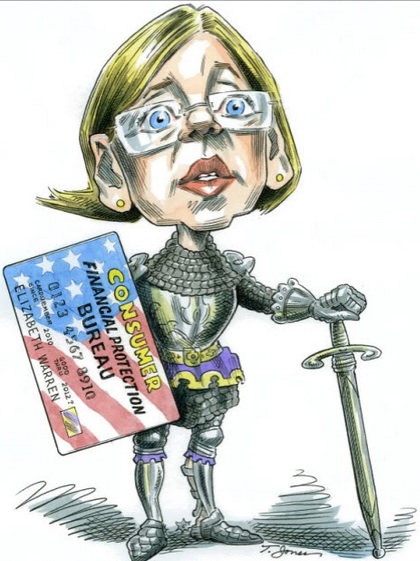“Never-ran” Warren is fiery and fierce. She made her name nationally through her dogged and fearless attacks on big banks and financial institutions. Outside of the presidential campaign, the Senator can keep that role — the symbolic embodiment of economic populism — and continue to target the financial elite who perpetuate dangerous and abusive inequality. From her pulpit as America’s most popular populist, Warren can hold candidates from both parties accountable.
As a “never-ran,” Warren can speak about the issues she cares about, without worrying about how she’s polling against her opponents. Just recently, she spoke out against the President on his big trade bill, and questioned Hillary’s coziness with Wall Street. That’s not to suggest that Warren, like any politician, ignores polling. But, intensity and impact of such calculations is ratcheted up when you’re actually running for office. If Warren isn’t a presidential candidate, she can be a conscience for all those who are.
Warren can also focus on the Republican coterie — by keeping issues in the debate so they’ll have to address them. At a time when our economy is recovering and corporate profits and elite incomes are growing faster than ever, wages for ordinary Americans are stagnant or declining. This is a real crisis that transcends political parties, and yet the simple fact is that only one party, the Democrats, is really talking about it.
When Warren said she wasn’t running, she meant it. (Unlike just about everyone else, for whom saying “I’ll never run” is virtually the same as declaring.) Rather, the “Run Warren Run” campaign reflected a true grassroots groundswell of progressive and independent voters inspired by Warren’s populist ideals and tenacity.
In a political system that feels increasingly theatrical — an uneventful show paid for and put on to preserve the power of the monied elites — Elizabeth Warren feels like a breath of fresh air, a fed-up and fired-up truth-teller who seems to be channeling the hearts and minds of average voters from across the political spectrum. As such, Warren is almost too good for politics — and definitely too good for the race for president. That’s why we’re so looking forward to her not running.

